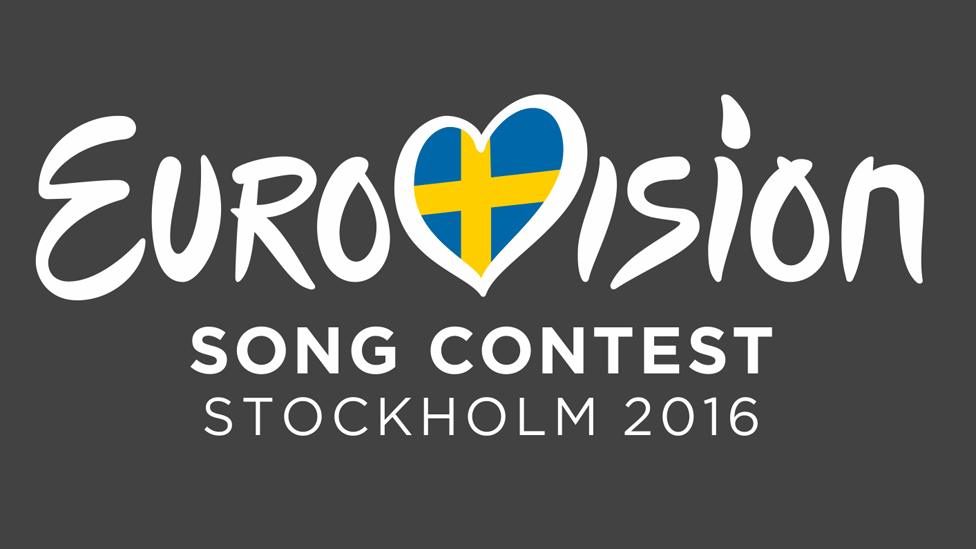Eurovision Song Contest: Portugal winner 'didn't understand votes'
- Published
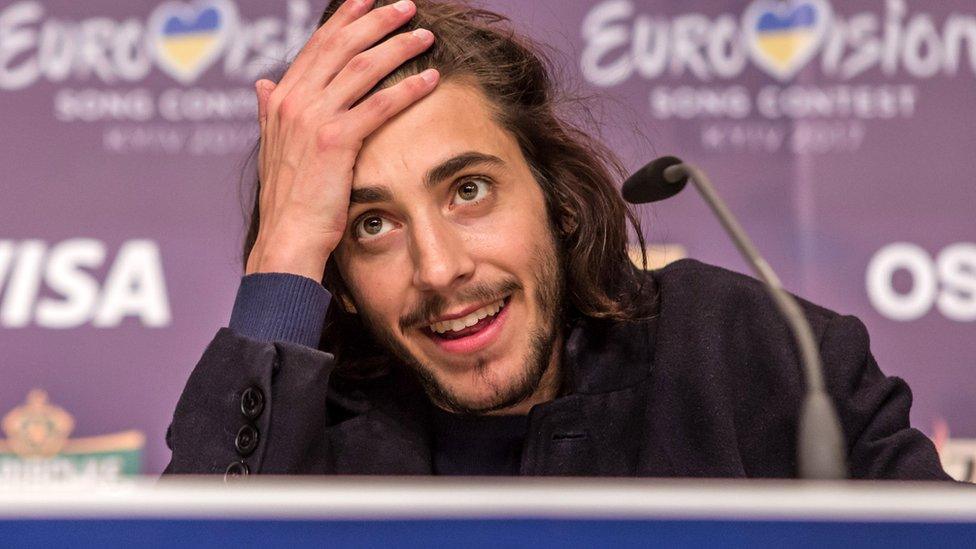
"I think that you have to be a mathematician"
Portugal has won this year's Eurovision Song contest with a poignant love song, sung in Portuguese. In the early hours of Sunday morning the winner met the world's press - glass microphone trophy still in hand.
Salvador Sobral entered the Eurovision Song Contest's press room last night with the same diffident, bemused demeanour he has projected since arriving in Kiev.
There was no swagger, no elation - just a quizzical befuddlement at the latest turn his musical journey had taken.
Like many watching at home around the world, the Lisbon-born 27-year-old had been baffled by the complex voting system that the contest adopted last year.
"I didn't understand the votes," he admitted to reporters. "I think that you have to be a mathematician or something to know what's going on."
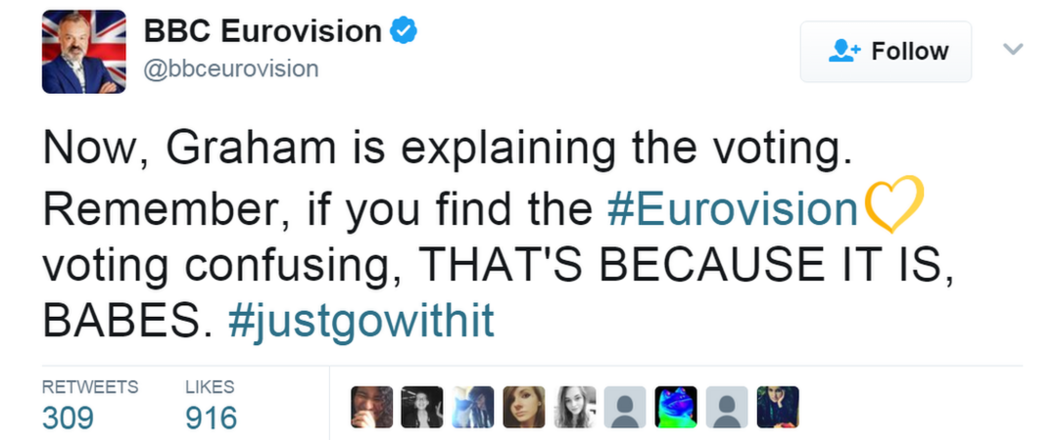
The winner wasn't alone in his confusion
Nor did he expect overnight fame and fortune to come with the honour of becoming Portugal's first Eurovision winner.
"I don't think anything will change," he shrugged. "You win today and tomorrow, no one remembers it.
"Honestly, man, I just want to live a peaceful life," he told another journalist.
"If I thought of myself as a national hero or champion of Europe, it would be a bit weird."
Even in such an eclectic line-up as the one Eurovision served up this year, Sobral stood apart.
While some countries offered amusing gimmicks (Romanian yodelling, Italy's dancing gorilla) and others sleek, assembly-line pop, his delicate, heartfelt ballad stood out precisely because it was so unassuming.
Written by Sobral's older sister Luisa, Amar Pelos Dois - whose title translates into English as Love for Both of Us - speaks to all genders and orientations with its inclusive, unadorned message.
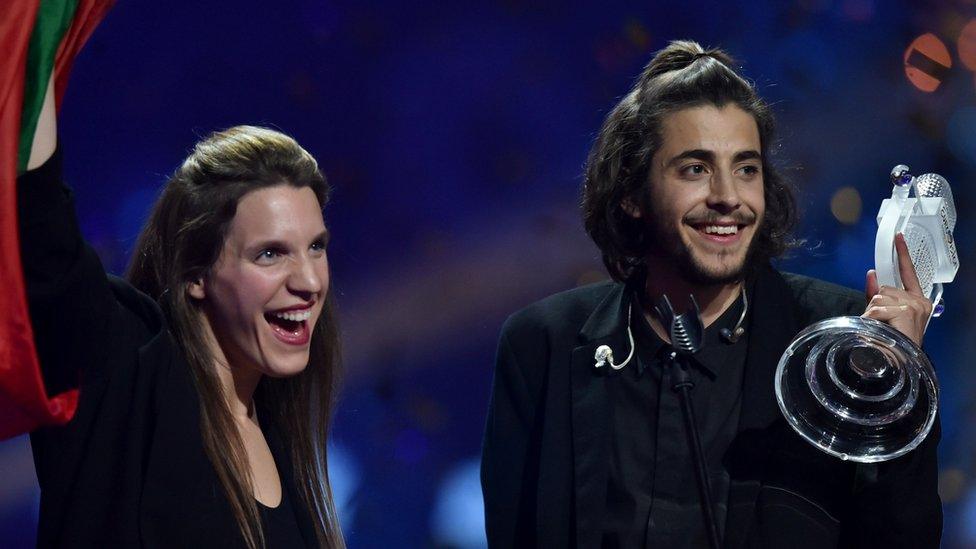
A family affair: Salvador's sister Luisa wrote the song for him
Sobral said he would be delighted if its Eurovision triumph had some impact, however small, on how music is made, produced and marketed.
"People listen to songs because they're thrown at you," he said. "You have to like this because we're going to play it 16 times a day and force you to like it.
"This is music with content, an emotional song with a beautiful lyrical message and harmony - things people are not used to listening these days.
"If I can help to bring some change to music I would be really joyful," he said, dressed as ever in a modest dark suit.
"And I hope it will encourage people to bring different things and all sorts of music to future editions of this contest."
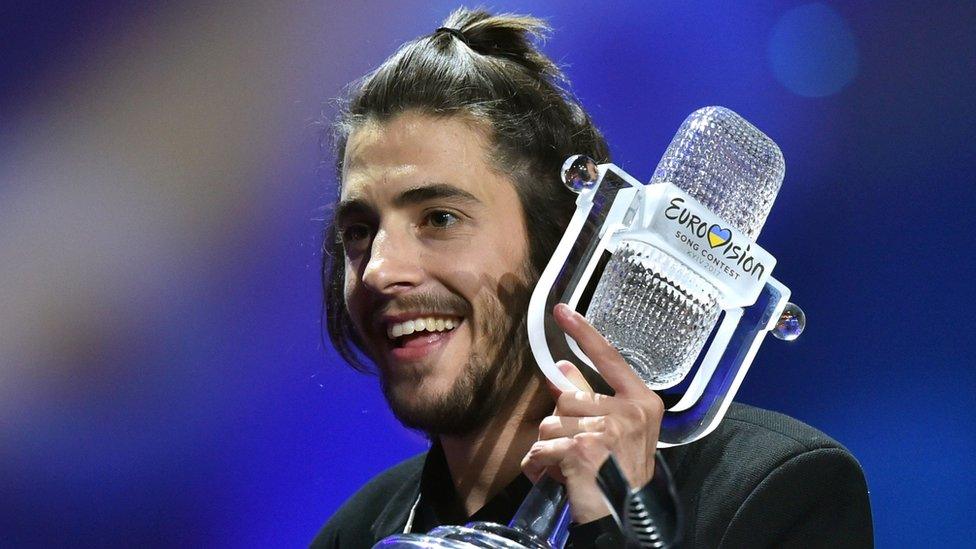
"We're going to play it 16 times a day and force you to like it," he said of the music business
Those future editions could learn much from this year, which offered audiences a spectacular, entertaining and endlessly quirky diversion.
For a contest whose slogan was "celebrate diversity", though, it was surprising more thought was not given to basic areas of presentation.
The final and the two semi-finals that preceded it were hosted by a trio of white male TV presenters who are all well-known in host nation Ukraine.
Commentator Graham Norton and one of his Australian counterparts were not alone in remarking that the line-up was hardly indicative of the contest's stated aim.
For the millions watching at home, however, it was the variety, the colour and the craziness that made it unmissable Saturday night viewing.
In keeping with Eurovision tradition, Portugal will host the 2018 iteration of an event that continues to unify Europe in a way politics never can or will.

Follow us on Facebook, external, on Twitter @BBCNewsEnts, external, or on Instagram at bbcnewsents, external. If you have a story suggestion email entertainment.news@bbc.co.uk, external.
- Published14 May 2017
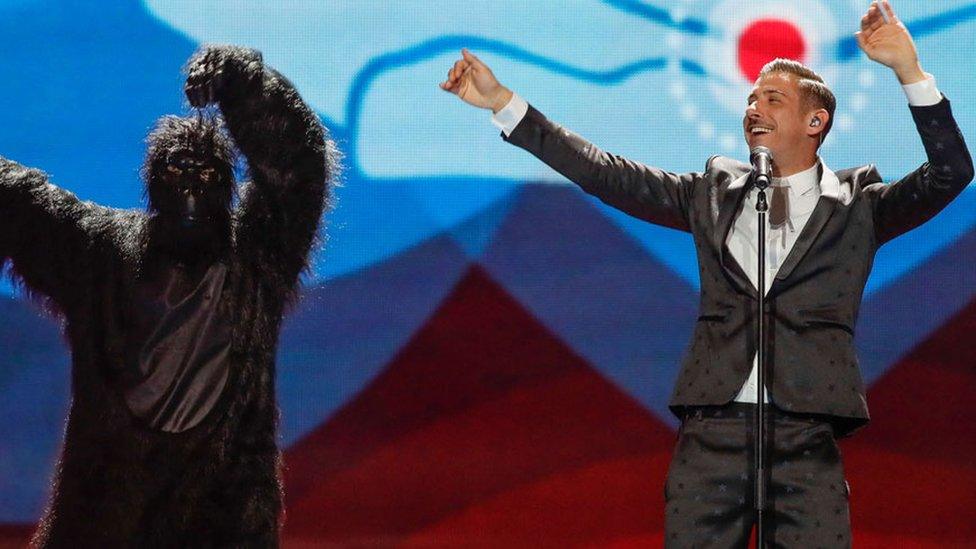
- Published14 May 2017
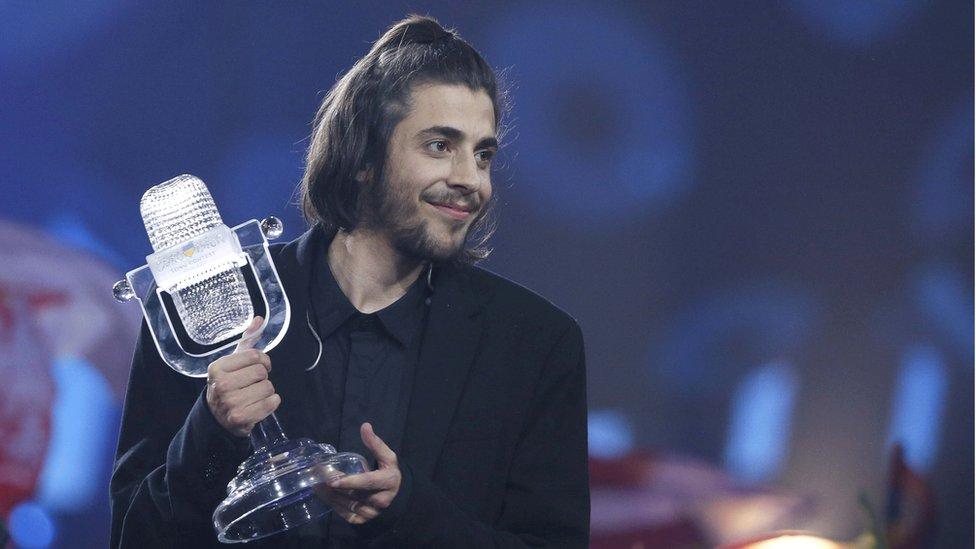
- Published12 May 2017
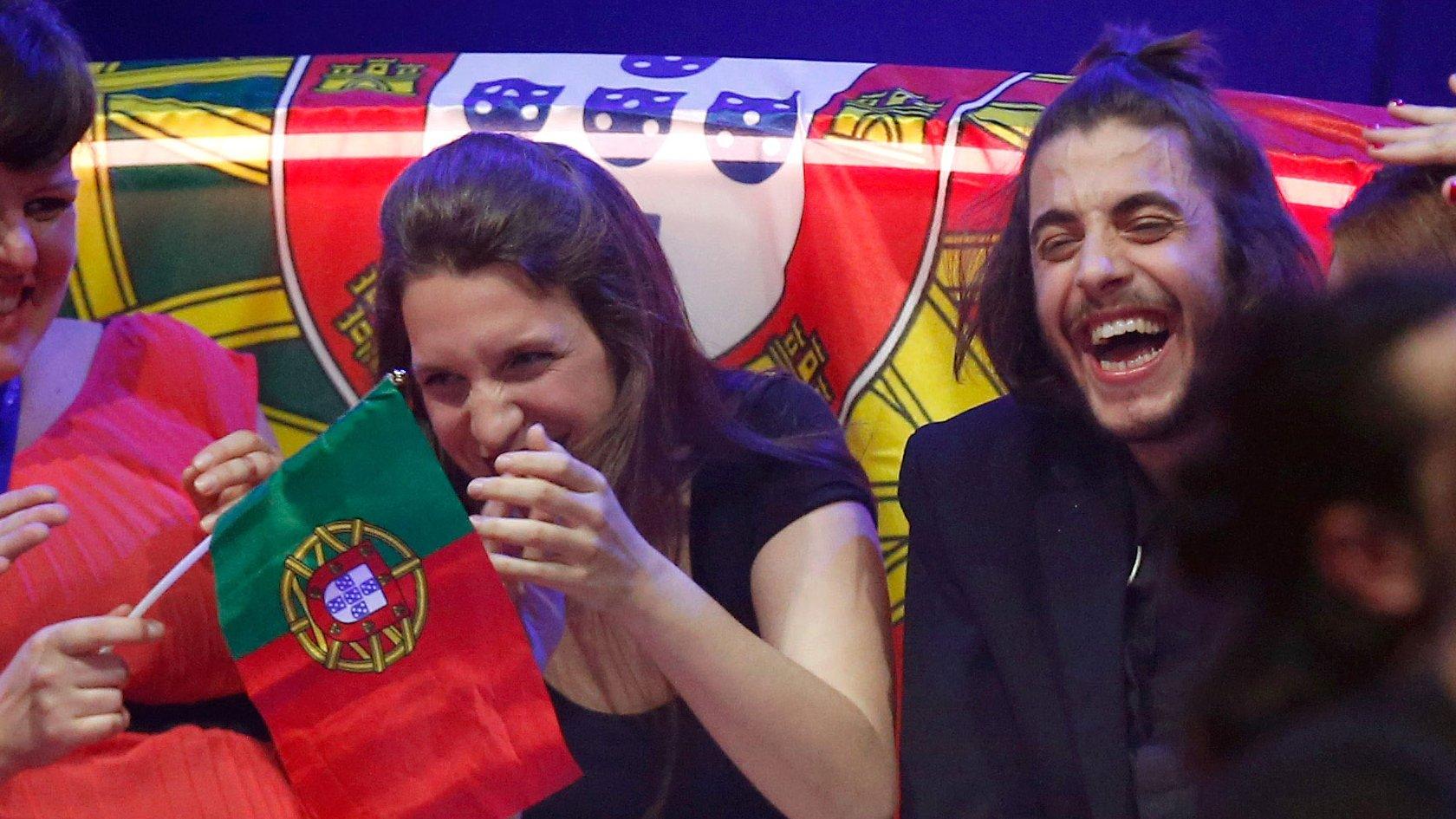
- Published18 February 2016
